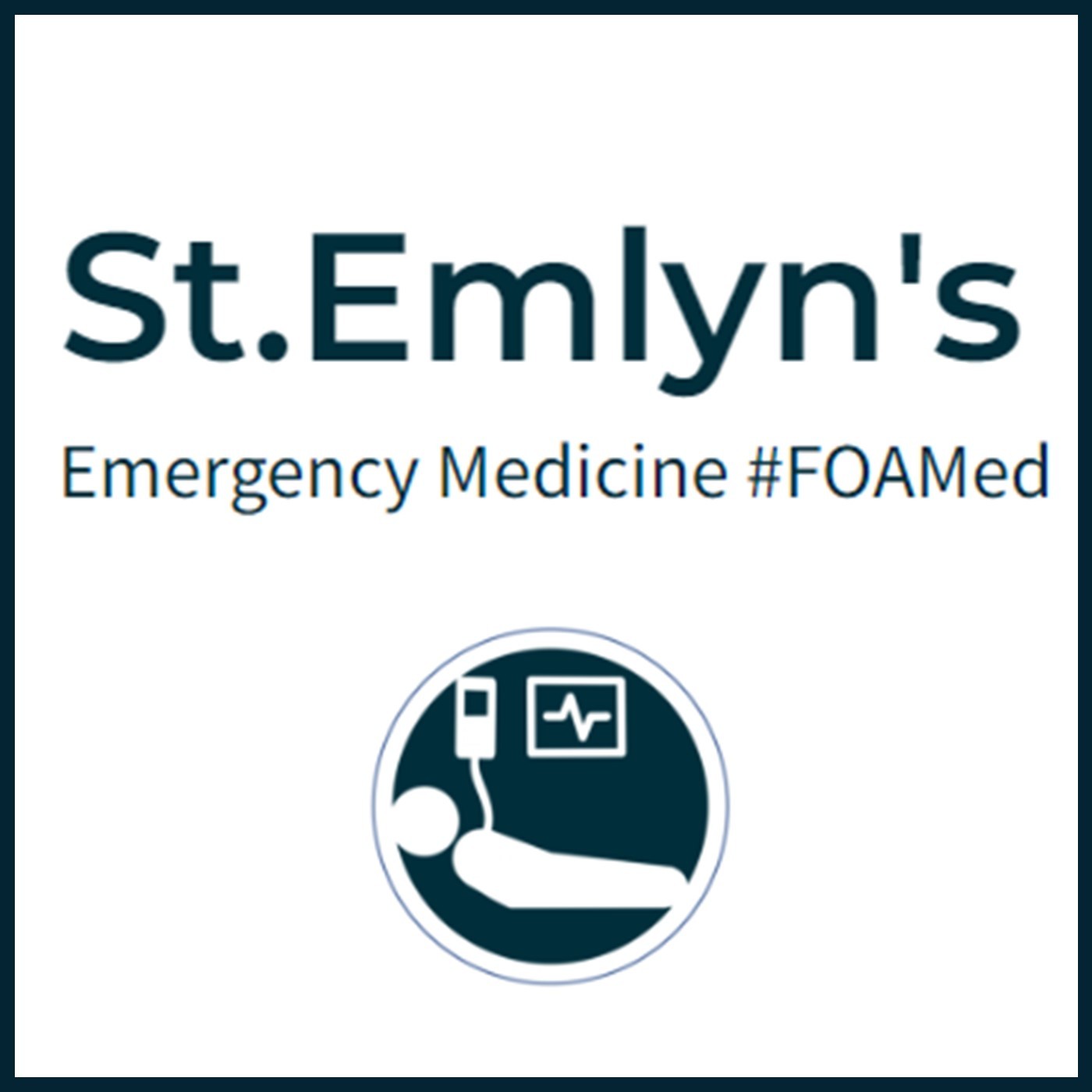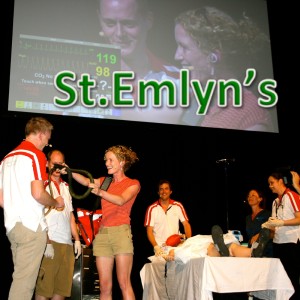
1.3M
Downloads
272
Episodes
A UK based Emergency Medicine podcast for anyone who works in emergency care. The St Emlyn ’s team are all passionate educators and clinicians who strive to bring you the best evidence based education. Our four pillars of learning are evidence-based medicine, clinical excellence, personal development and the philosophical overview of emergency care. We have a strong academic faculty and reputation for high quality education presented through multimedia platforms and articles. St Emlyn’s is a name given to a fictionalised emergency care system. This online clinical space is designed to allow clinical care to be discussed without compromising the safety or confidentiality of patients or clinicians.
Episodes

Thursday Jun 26, 2014
Ep 6 - SMACC Back-Back on What to believe and when to change.
Thursday Jun 26, 2014
Thursday Jun 26, 2014
Navigating the Challenges of Early and Late Adoption in Medical Practice
In the ever-evolving landscape of medicine, the timing of adopting new treatments and technologies is a critical decision for clinicians. Simon Carley, in a discussion with Scott from St. Emlyn's podcast, delves into the complexities of being an early or late adopter, exploring the associated risks and benefits. This conversation highlights the fine line between innovation and patient safety, and the careful considerations required for responsible clinical practice.
The Risks of Early and Late Adoption
Both early and late adoption come with inherent dangers. Early adopters, eager to implement new innovations, may face unforeseen consequences. A historical example is the use of flecainide in the 1980s, initially believed to reduce ventricular disruptions in post-MI patients. However, it was later found to potentially cause more harm than benefit, underscoring the unpredictability of medical advances. On the other hand, late adopters risk failing to provide patients with the latest and most effective treatments, potentially resulting in suboptimal care.
Carley emphasizes the importance of a balanced approach, avoiding the pitfalls of both extremes. He discusses the concept of "dogmalacis," the enthusiasm for challenging established medical practices with new evidence. Both he and Scott agree that while it is essential to embrace new findings, clinicians must do so with caution and a thorough understanding of the current evidence base.
The Complexity of Determining Optimal Timing
Determining the optimal timing for adopting new practices—referred to as the "Goldilocks moment"—is complex and often only clear in hindsight. Carley notes that senior clinicians, in particular, must exercise careful judgment, understanding the strength of the evidence supporting current practices before making changes. This prudence is crucial to ensure that new practices are adopted based on solid evidence rather than mere enthusiasm.
Case Study: Targeted Temperature Management (TTM) Trial
The discussion includes a specific example: the Targeted Temperature Management (TTM) trial, which challenged previous beliefs about the benefits of hypothermia in post-cardiac arrest care. The trial suggested that fever avoidance was more critical than aggressive cooling, sparking significant debate. This case illustrates how new evidence can disrupt established practices and provoke emotional responses among practitioners.
Carley and Scott also discuss the need for rigorous evidence, particularly randomized controlled trials (RCTs), to support the adoption of new technologies and treatments. They highlight the glidescope trial, which demonstrated potential harm from the device in a randomized setting. The scarcity of such trials in evaluating new medical technologies points to a gap in evidence-based practice, stressing the importance of high-quality research to guide clinical decisions.
Balancing Innovation with Caution
Carley shares personal reflections on the challenges of balancing innovation with caution. While acknowledging the necessity of early adopters for medical progress, he stresses the need for careful consideration and expertise. Not every clinician or situation is suited for early adoption; it requires a deep understanding of the underlying science and a cautious approach to patient care.
He draws parallels between professional and personal experiences, noting his own tendency toward late adoption in certain areas, such as his decision to marry. This anecdote serves as a metaphor for the broader discussion, highlighting that timing in adoption is crucial and often a personal, context-dependent decision.
Embracing Continuous Improvement
The conversation culminates in a shared commitment to continuous improvement in medical practice. Both Carley and Scott emphasize the importance of doing the best with current knowledge and being ready to change when better evidence becomes available. They resonate with Maya Angelou's quote: "Do the best you can until you know better. Then when you know better, do better." This principle captures the essence of their discussion, advocating for a flexible and reflective approach to clinical practice.
Conclusion
Navigating the challenges of early and late adoption in medicine requires a careful balance between innovation and caution. Clinicians must be willing to embrace new evidence and change practices while ensuring that these changes are grounded in solid, high-quality research. The dialogue between Simon Carley and Scott highlights the complexities and responsibilities involved in this process, underscoring the need for continuous learning and adaptability in medical practice. Through thoughtful consideration and a commitment to evidence-based care, clinicians can optimize patient outcomes and advance the field of medicine.

8 years ago
14 4 consultants E